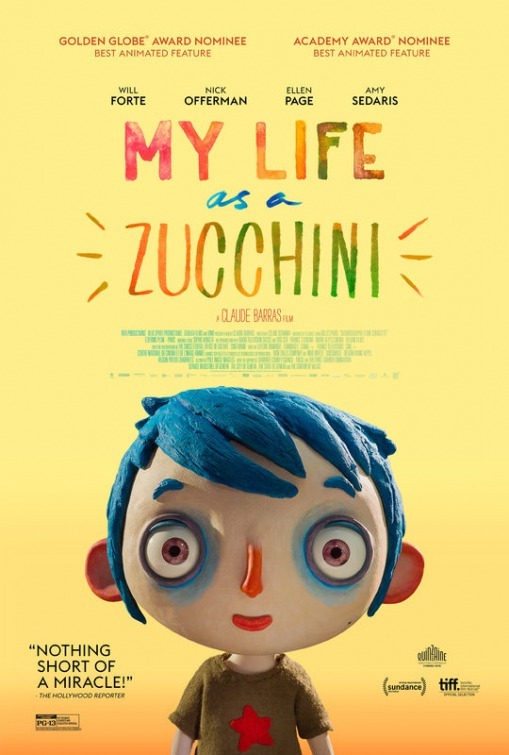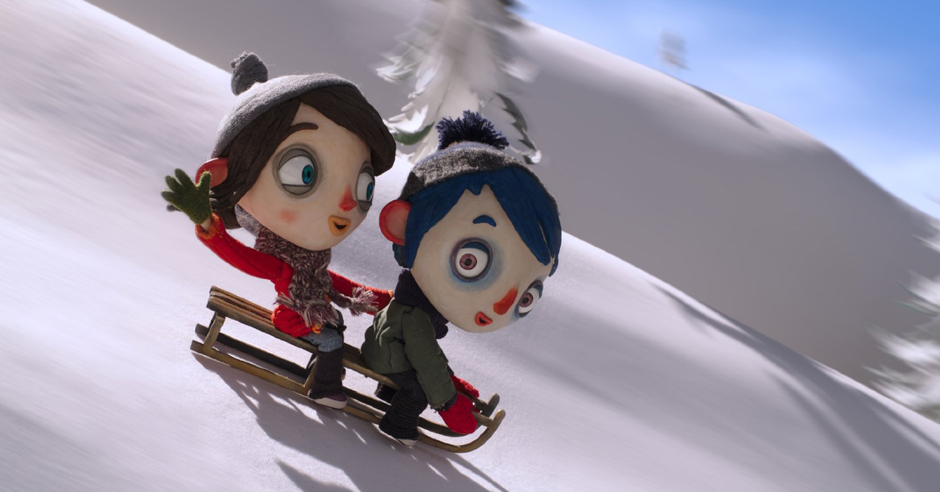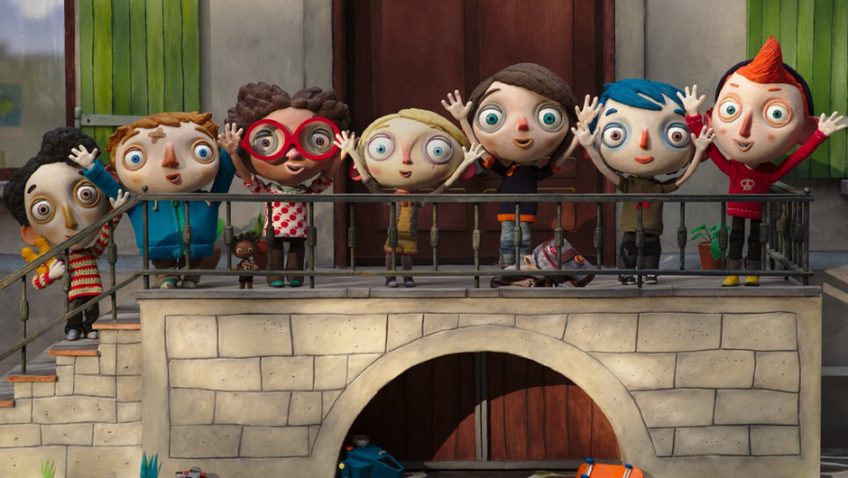Joyce Glasser reviews My Life as a Courgette (June 2, 2017) (PG-13)
As one of a select group of five animated features nominated for an Academy Award this year, Swiss director Claude Barras’ My Life as a Courgette (Zucchini) comes with a ready-made stamp of approval of the highest order. It opens with a matricide which is accidental – if you discount Freud’s contention that there’s no such thing as an accident. The film is released in the French version with sub-titles or the dubbed version (on which this review is based).
 Adapted from Gilles Paris’ 2002 novel, My Life as a Courgette distinguishes itself among animated films on anther count: it tackles the difficult subject of children in a state-run foster home with the painstaking technique of stop-frame animation and a bitter/sweet script by Céline Sciamma (Girlhood, Tomboy) that expresses the children’s point of view. While the script’s humour, psychological awareness and intelligence prevent it from falling into mawkishness, the clichéd wicked aunt subplot and predictable, simplistic nature of the Raymond/Courgette relationship are minor letdowns in an otherwise remarkable film.
Adapted from Gilles Paris’ 2002 novel, My Life as a Courgette distinguishes itself among animated films on anther count: it tackles the difficult subject of children in a state-run foster home with the painstaking technique of stop-frame animation and a bitter/sweet script by Céline Sciamma (Girlhood, Tomboy) that expresses the children’s point of view. While the script’s humour, psychological awareness and intelligence prevent it from falling into mawkishness, the clichéd wicked aunt subplot and predictable, simplistic nature of the Raymond/Courgette relationship are minor letdowns in an otherwise remarkable film.
While Icare (Erick Abbate) is adding the finishing decorative touches to his superhero kite before flying it from his attic window, his alcoholic mother ascends the stairs to his rooms in the eaves. Inebriated and shouting threats, Icare instinctively slams the door in the floor and then there is silence. When he tells the story to a sympathetic police man named Raymond (Michel Vuillermoz) he informs Raymond that his name is Courgette – his mother’s nickname for him – and not Icare. Courgette was apparently abandoned by his father, leaving him with a useless mother, but a mother nonetheless. While there is a symbolic connotation to Icare (the French for Icarus), the silly name seems to reflect the boy’s desire for a maternal bond at any cost.
The nine-year-old is placed in a foster home with six other children his age. There is no Dickenson sadism here. The headmistress (Susanne Blakeslee) and the two teachers, who are married and expecting a baby (Will Paul and Ellen Page) are empathetic, astute and sensitive people. However sympathetic the home environment is designed to be, the children manifest their deep-seated individual traumas, some more demonstratively than others. All of them have been abandoned in some way by those who should have been protecting and loving them.
If there is no Matilda-like head mistress, there is Simon, the self-appointed group ‘boss’ and bully, who asserts his superior knowledge of everything, including the sexual act. Courgette – a possible rival – is Simon’s new target.
The filmmakers know how to tug at the heart strings, but you won’t mind. Whenever a car drives up to the home, Beatrice (Olivia Bucknor) runs out, shouting, ‘Mama, Mama?’ Raymond tells the headmistress that he wants to go home to his mother, although he knows that she is dead and that she was hardly a mother.
In a long expository scene, in the hope of learning Courgette’s story, Simon tells Courgette why he was brought to the home, and does the same for the other children. Beatrice’s mother got deported, while Alice’s father was ‘a creep’. Ahmed’s (Barry Mitchell) mother was arrested for stealing trainers for her son while Simon’s (Romy Beckman) parents ‘did drugs: a lot!’ The filmmakers leave it to the viewer to conclude that Simon’s aggressive, bullying behaviour reflects that of his role models while masking his insecurity.
Simon, extends an olive branch after Courgette refuses to rat on him and from this point, the obstacles come from an external source. One day a pretty, feisty and intelligent girl named Camille (Ness Krell) is dragged to the school by her wicked aunt. The aunt, we will learn, only agreed to take custody of her sister’s child because of the share of a large inheritance. By breaking into the principal’s office, Simon and Courgette learn that Camille was witness to horrific domestic violence.
For a light touch, the filmmakers include Simon’s hilarious description of the sex act, and the children’s equally funny commentary when they see their two teachers kiss. There is also a ski trip where Camille and Courgette bond in a touching puppy love. Although the ski trip provides the children with a taste of normality, we are reminded that they can never forget (in this instance, thanks to a rich, condescending mother) how different they are.
Raymond takes Courgette and Camille out for a day and, after a trip to an amusement park, he invites the pair to his home where two airy bedrooms full of plants are empty. Raymond explains that he has a son whom he seldom hears from. ‘Sometimes children leave their parents, too,’ he explains with muted sadness.
While it might strike you as surprising that the single, 40-something Raymond is allowed to take Courgette, and then Camille and Courgette out for the day simply because he is a police officer, we have to assume the necessary checks were made!
What is more surprising is that 10-inch tall plasticine characters with impossibly large, round heads and eyes and long arms, can move us to tears. In the case of Courgette, with his red ears and nose and blue hair he is coloured more like a strange ratatouille than a courgette. The adults are depicted more realistically. Sophie Hunter’s guitar music is a sobering score that hits the right notes in a film that balances vulnerable and forgiving children with a very harsh reality.
You can watch the film trailer here:




